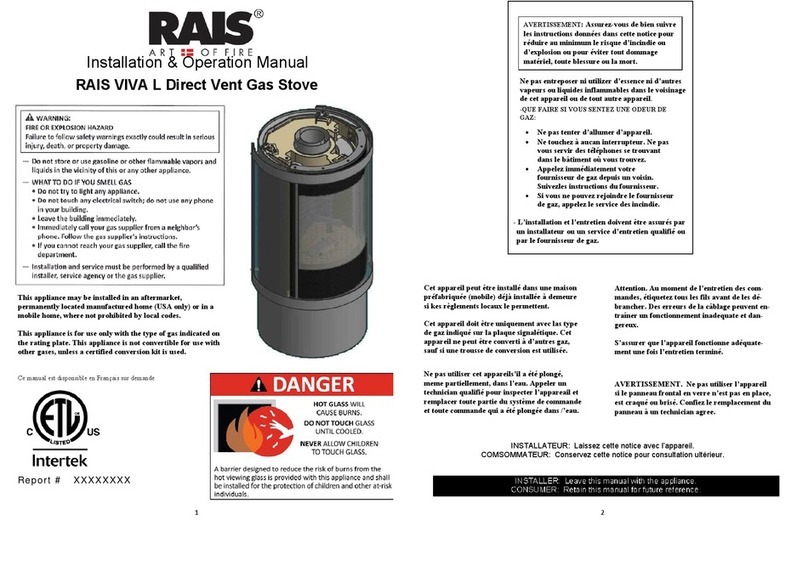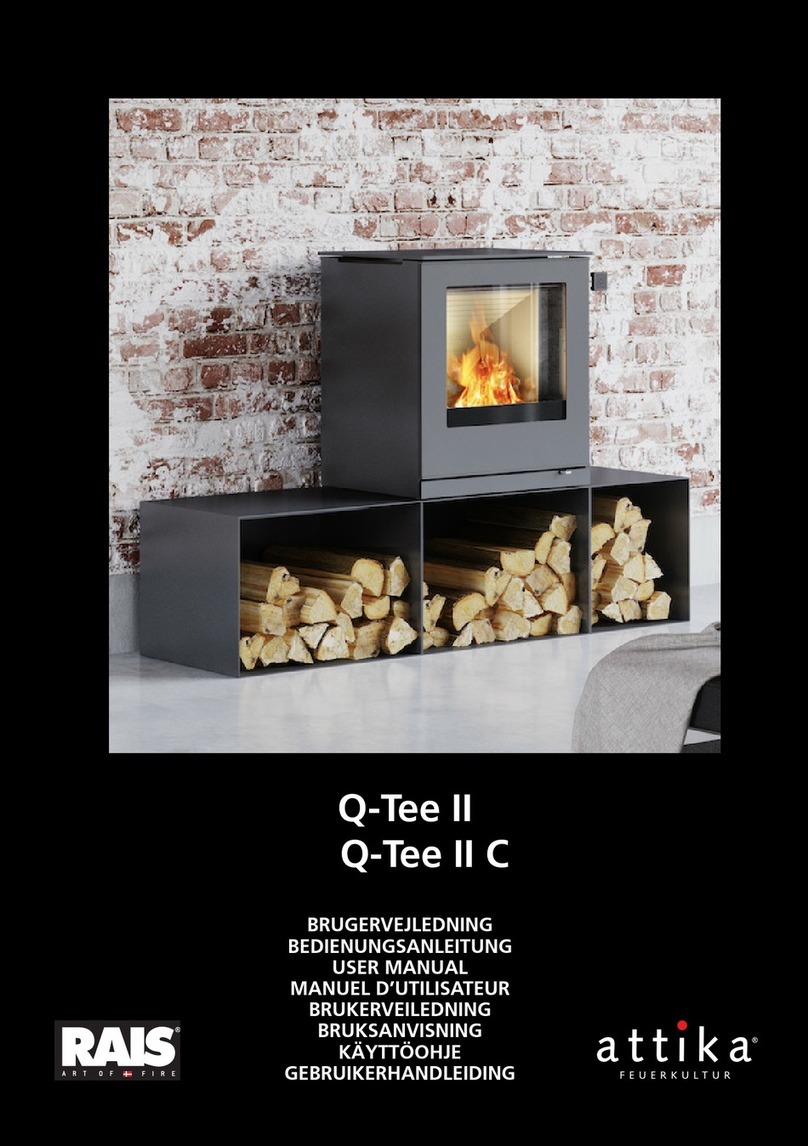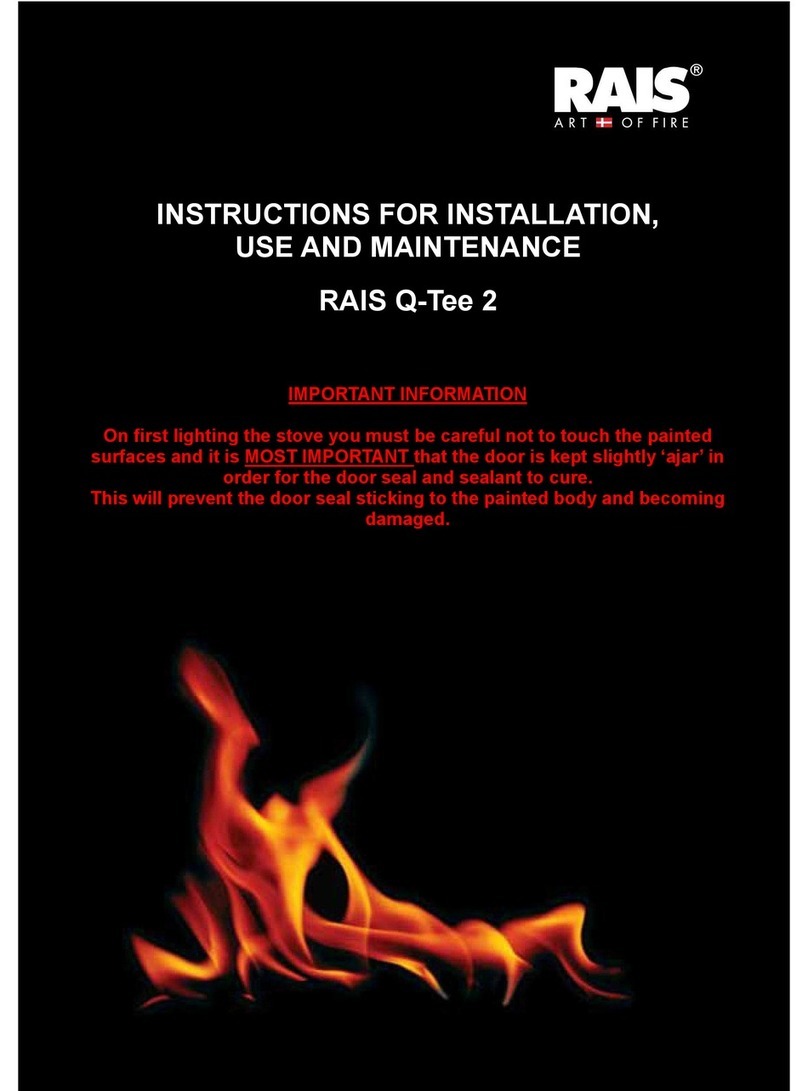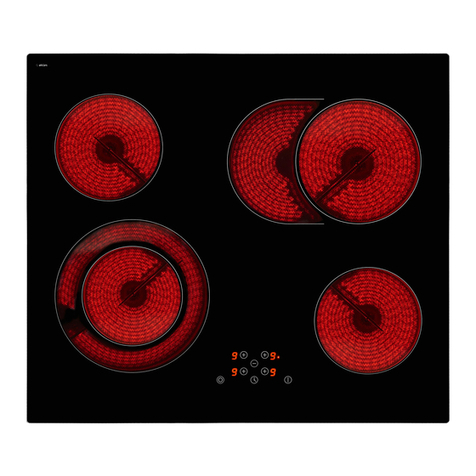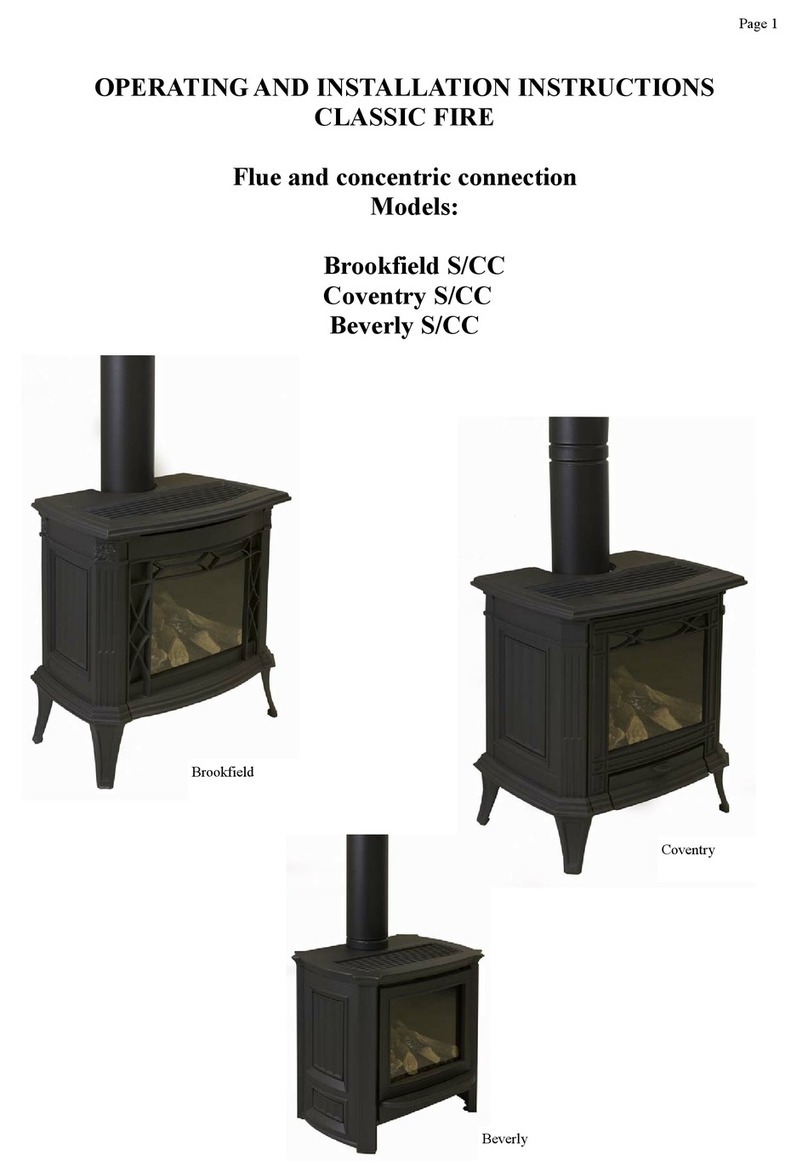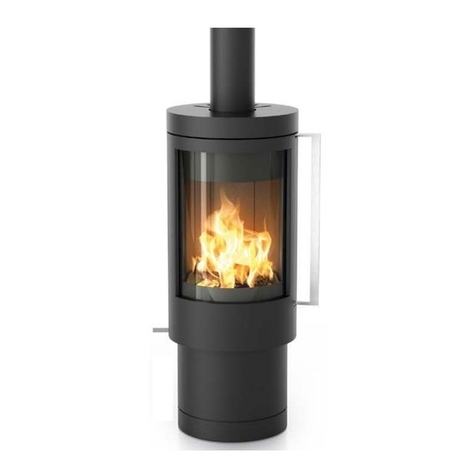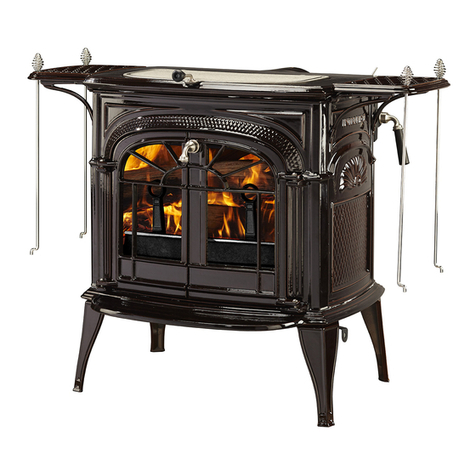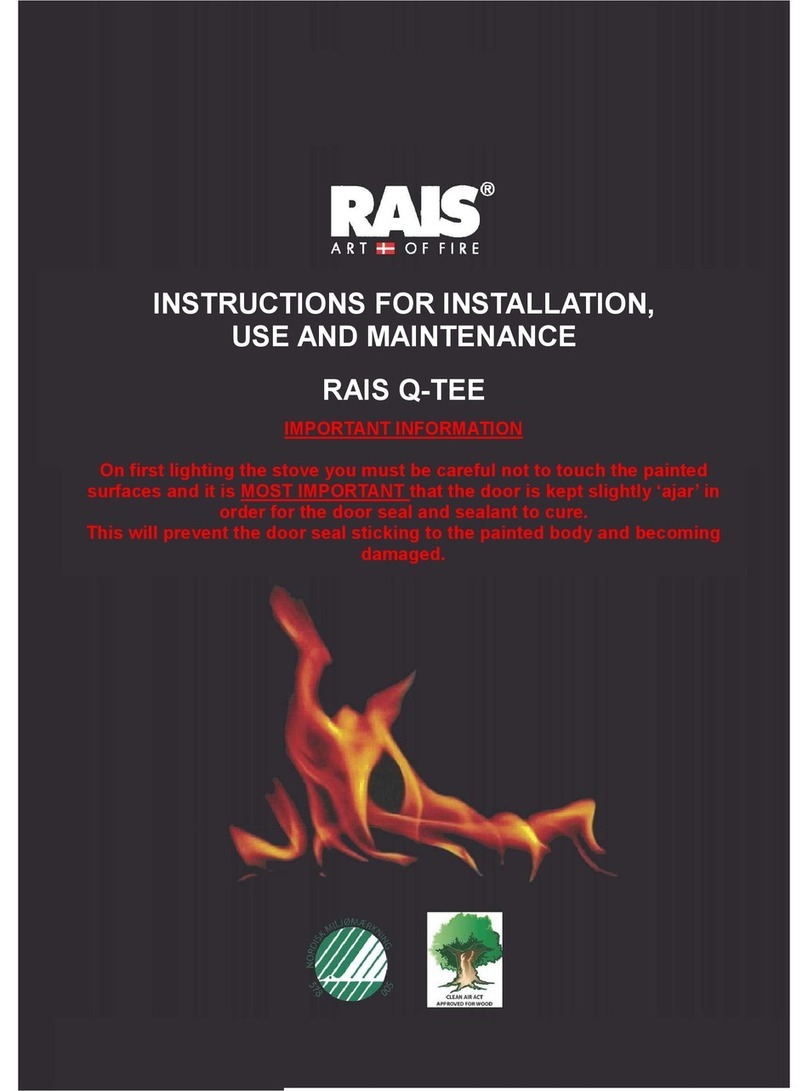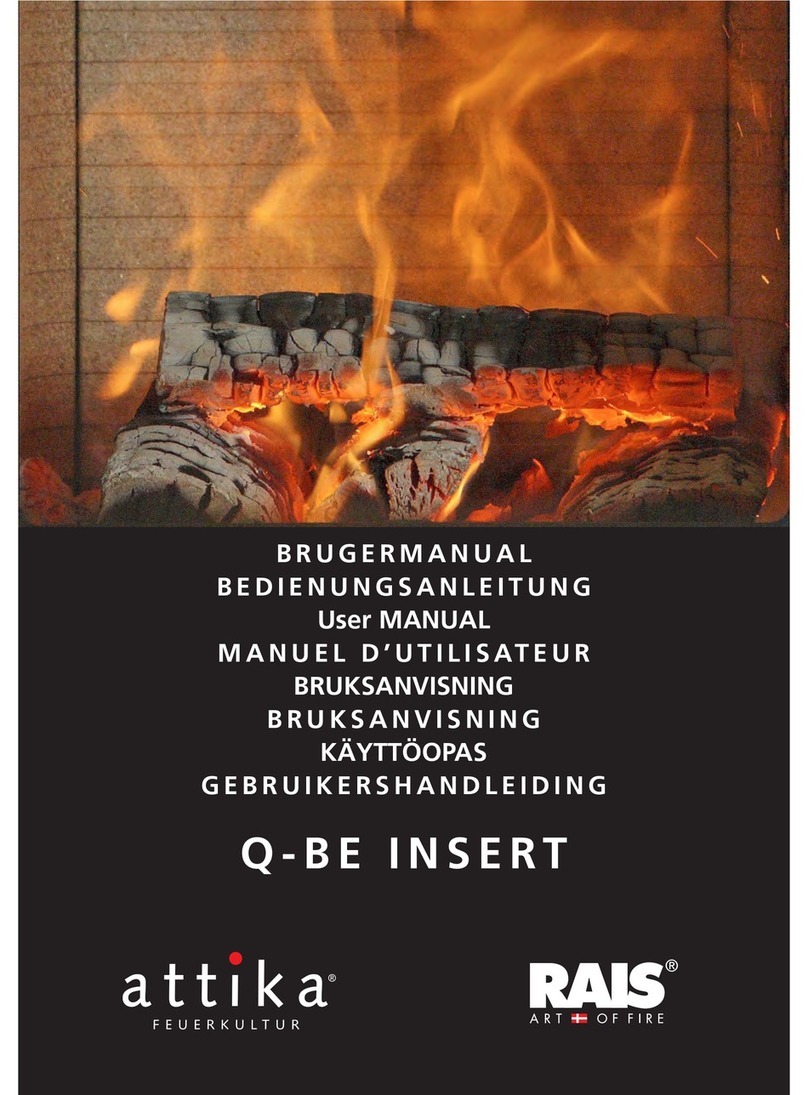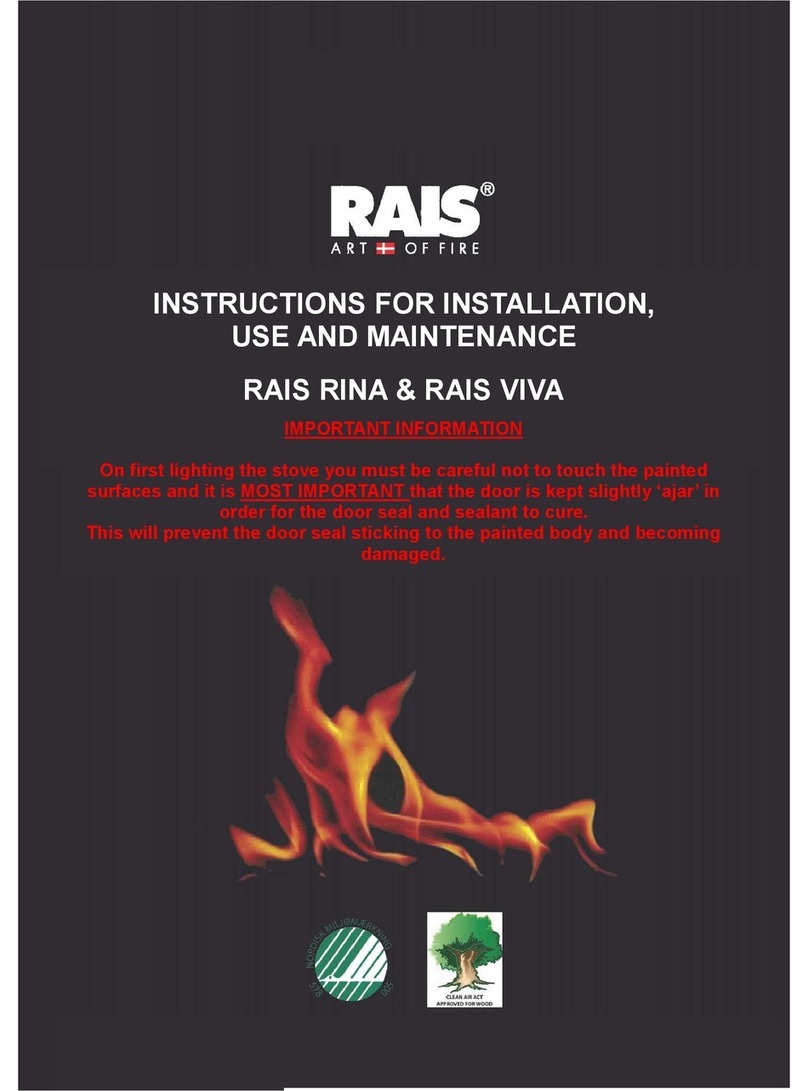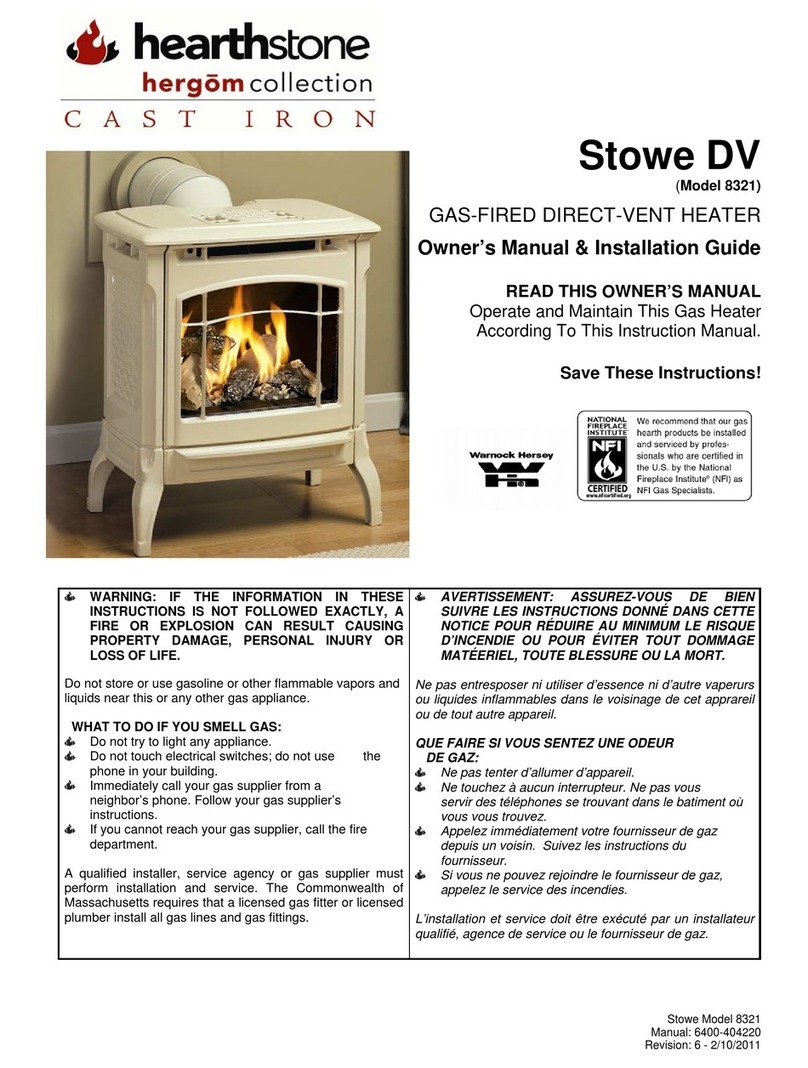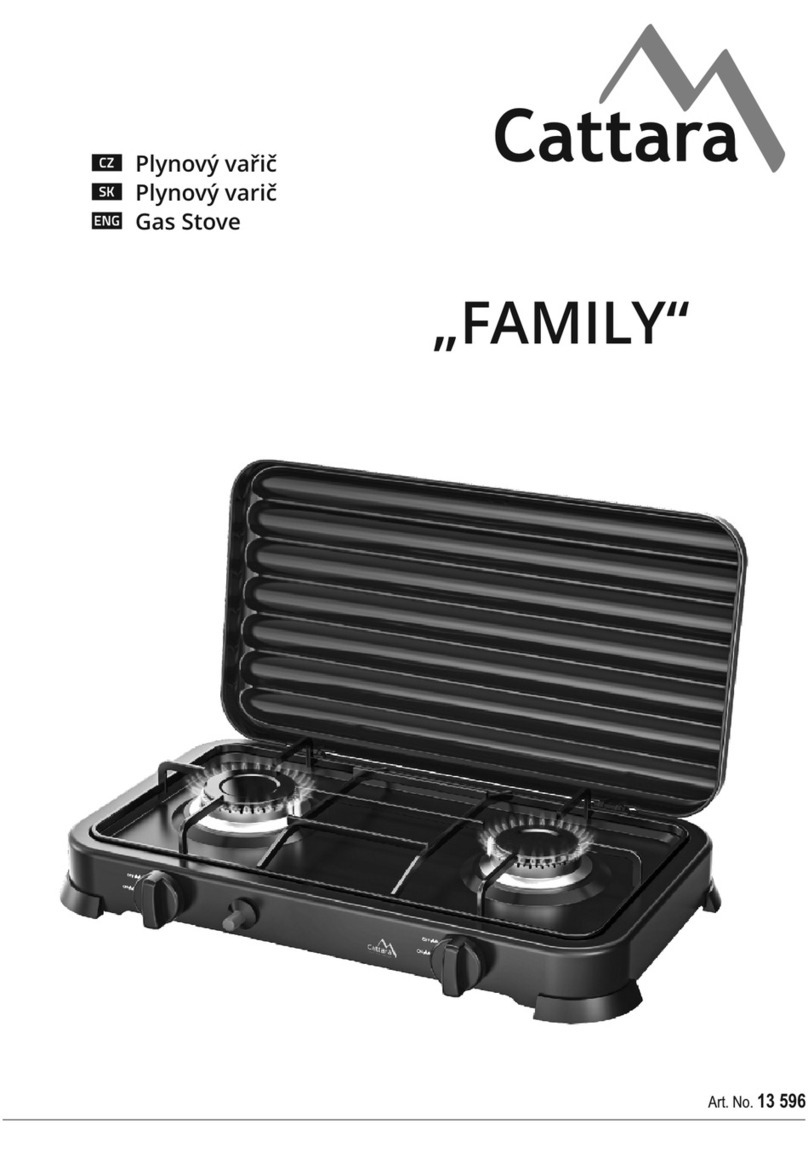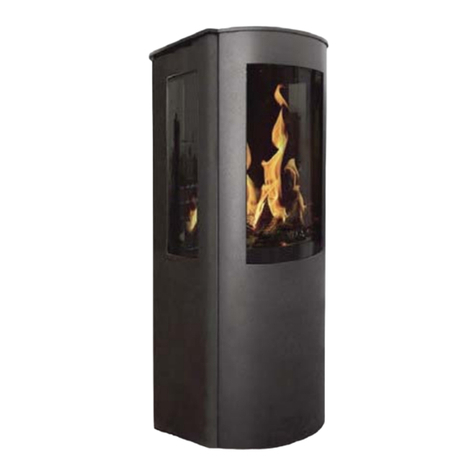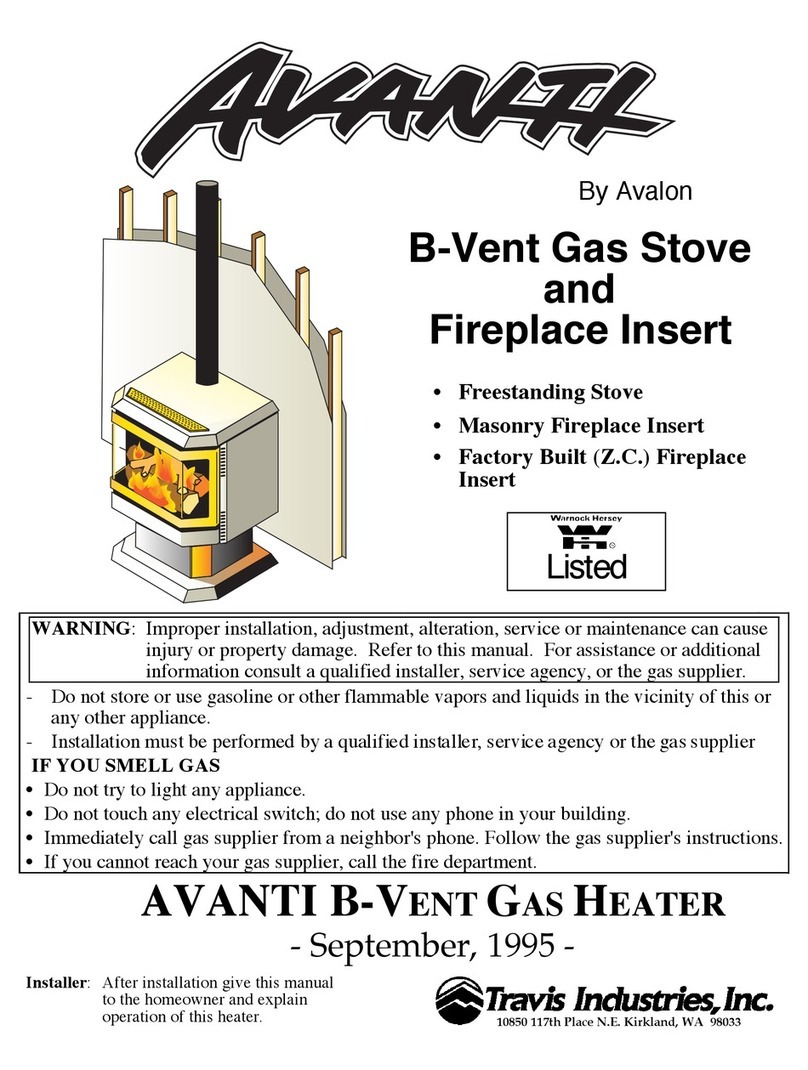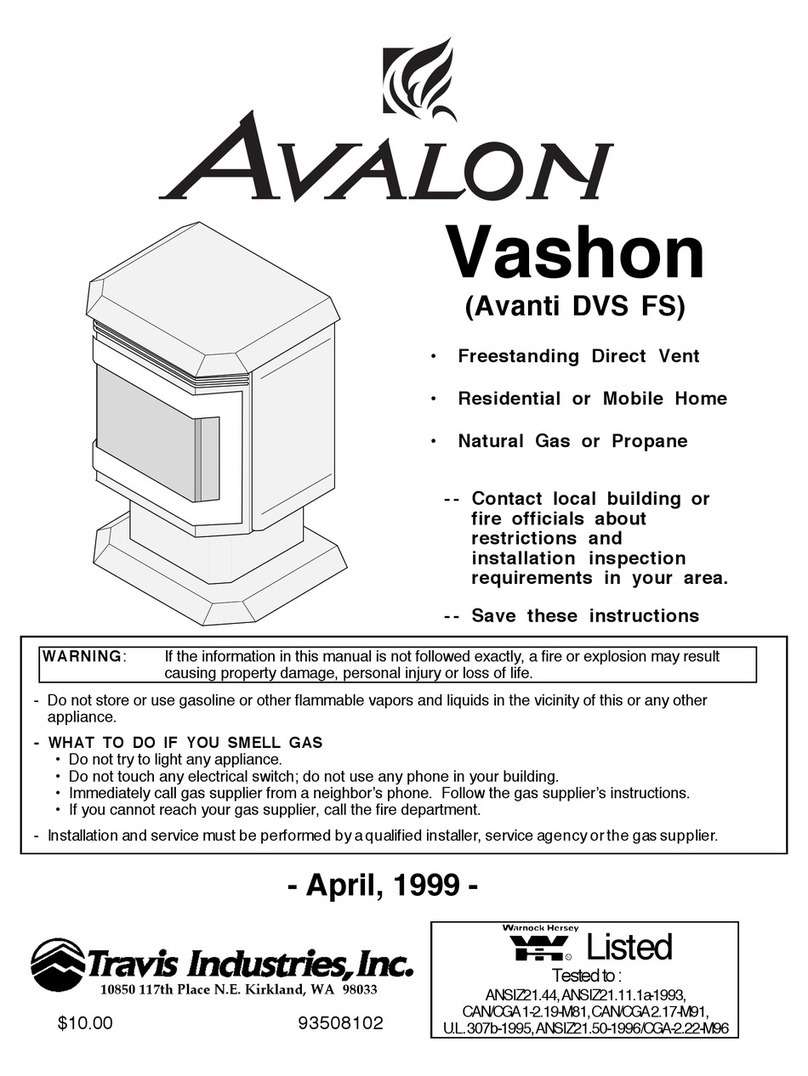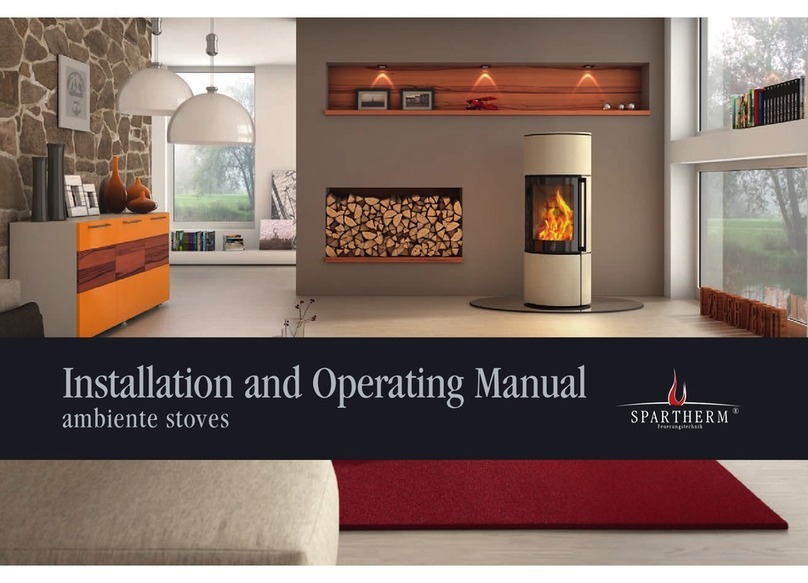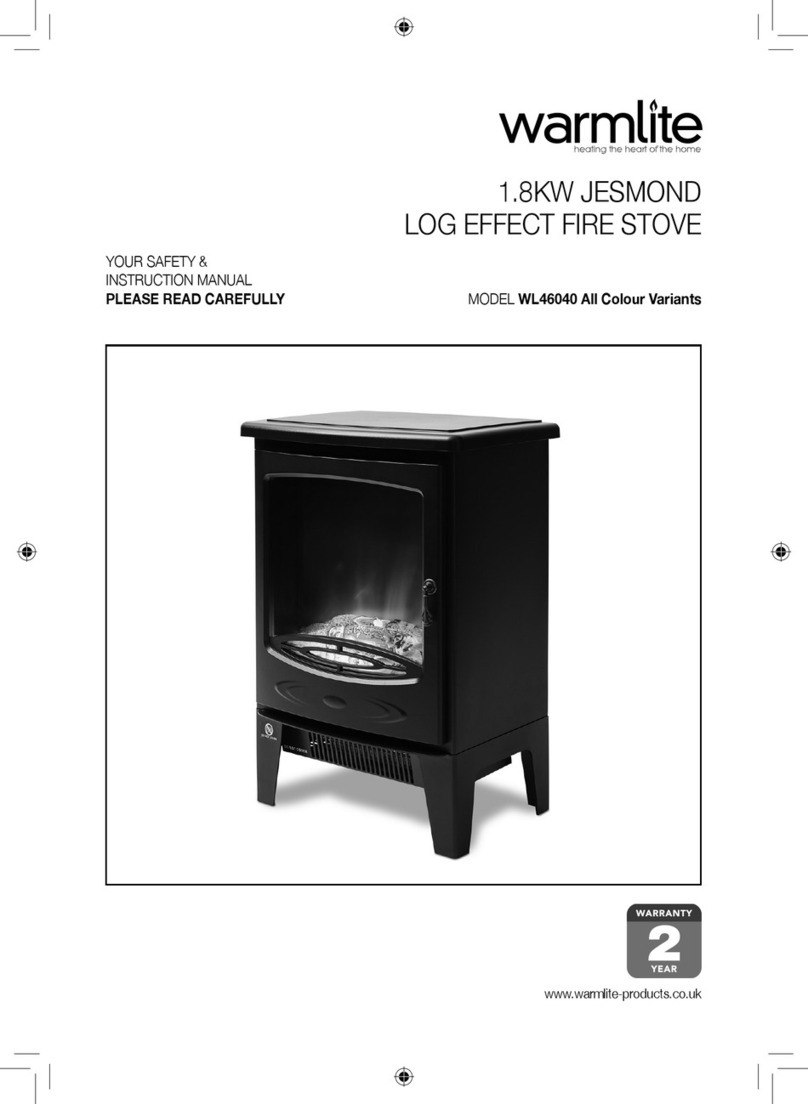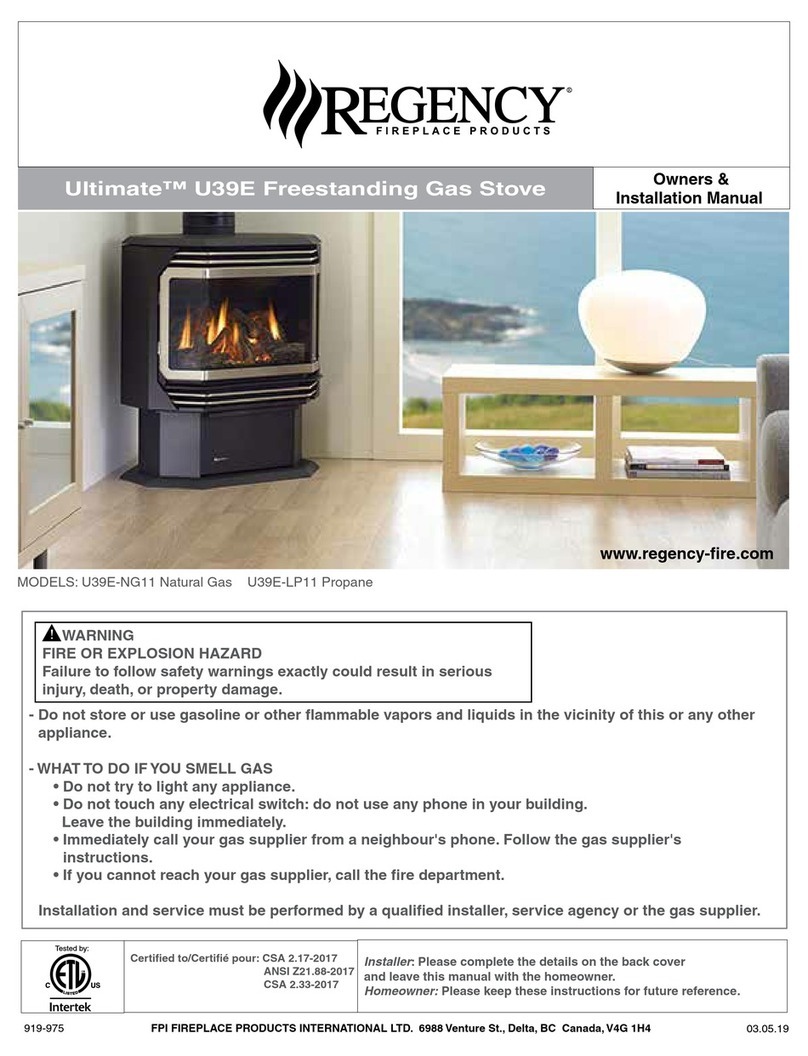Manual for Rais Rina, Rais Viva & Rais Juno
8
January 2014
smokeless fuels or exempt appliances for use in smoke control areas in England. In Scotland and Wales
t is power rests wit Ministers in t e devolved administrations for t ose countries. Separate legislation, t e
Clean Air (Nort ern Ireland) Order 1981, applies in Nort ern Ireland. T erefore it is a requirement t at fuels
burnt or obtained for use in smoke control areas ave been "aut orised" in Regulations and t at appliances
used to burn solid fuel in t ose areas (ot er t an "aut orised" fuels) ave been exempted by an Order
made and signed by t e Secretary of State or Minister in t e devolved administrations.
Rais Q-Tee, Rina, Vi a, Juno, 500, 900, Epoca II, Poleo II, 900 and Q-Tee II
T ese ave been recommended as suitable for use in smoke control areas w en burning wood. T e air
controls are factory set to allow a certain amount of combustion air w en t e controls are fully closed, t e
controls must not be modified in any way. T e Q-Tee II model (only) is also approved for use wit approved
mineral fuels.
Furt er information on requirements of t e Clean Air Act can be found at: ttp://smokecontrol.defra.gov.uk/
Your local aut ority is responsible for implementing t e Clean Air Act 1993 including designation and
supervision of smoke control areas and you can contact t em for details of Clean Air Act requirements
Special Notes for use in a Smoke Control Area:
Refuelling on to a low fire bed:
If t ere is insufficient burning material in t e firebed to lig t a new fuel c arge, excessive smoke emission
can occur. Refuelling must be carried out onto a sufficient quantity of glowing embers and as t at t e new
fuel c arge will ignite in a reasonable period. If t ere are too few embers in t e fire bed, add suitable
kindling to prevent excessive smoke
Fuel o erloading:
T e maximum amount of fuel specified in t is manual s ould not be exceeded, overloading can cause
excess smoke.
Operation with door left open:
Operation wit t e door open can cause excess smoke. T e appliance must not be operated wit t e
appliance door left open except as directed in t e instructions.
Dampers left open:
Operation wit t e air controls or dampers open can cause excess smoke. T e appliance must not be
operated wit air controls or dampers left open except as directed in t e instructions.
Periods of Prolonged Non-Use
If t e stove is to be left unused for a prolonged period of time t en it s ould be given a t oroug clean to
remove as and unburned fuel residues. To enable a good flow of air t roug t e appliance to reduce
condensation and subsequent damage, leave t e air controls fully open.
Extractor fan
T ere must not be an extractor fan fitted in t e same room as t e stove as t is can cause t e stove to emit
smoke and fumes into t e room.
Aerosol sprays
Do not use an aerosol spray on or near t e stove w en it is alig t.
Use of operating tools
Always use t e operating tools provided w en andling parts likely to be ot w en t e stove is in use.
Chimney Fires
If t e c imney is t oroug ly and regularly swept, c imney fires s ould not occur. However, if a c imney fire
does occur turn off t e stove immediately and isolate t e mains electricity supply (if applicable), and tig tly
close t e doors of t e stove. T is s ould cause t e c imney fire to go out. If t e c imney fire does not go
out w en t e above action is taken t en t e fire brigade s ould be called immediately. Do not relig t t e
stove until t e c imney and flueways ave been cleaned and examined by a professional.
Permanent air ent
T e stove requires a permanent and adequate air supply in order for it to operate safely and efficiently.
In accordance wit current Building Regulations t e installer may ave fitted a permanent air supply vent
into t e room in w ic t e stove is installed to provide combustion air. T is air vent s ould not under any
circumstances be s ut off or sealed.

